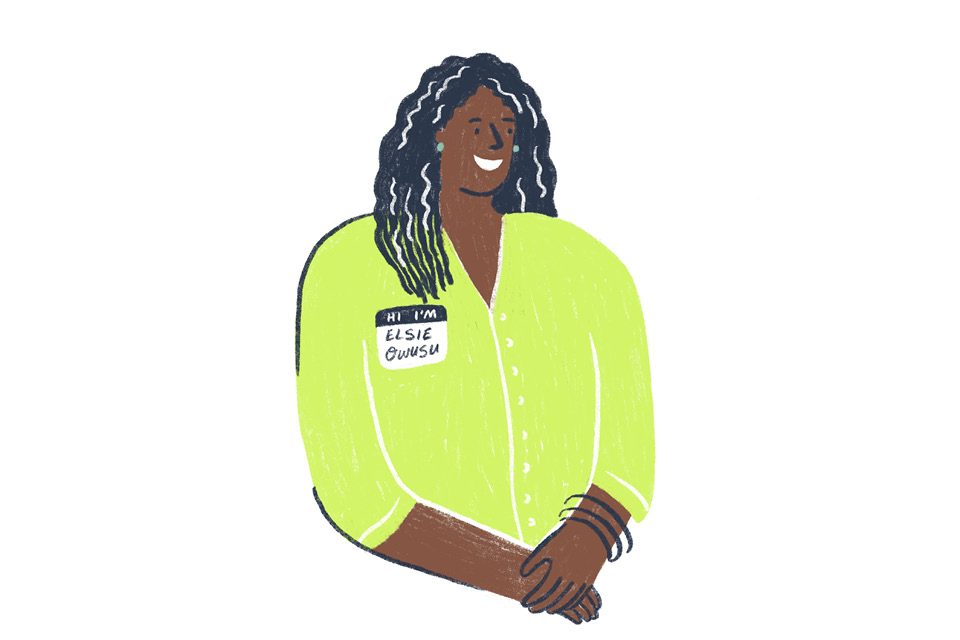Elsie Owusu OBE is a Ghana-born British architect based in London. She was the first chair of the Society of Black Architects and has been a council member of the Royal Institute of British Architects (RIBA) since 2014. Her portfolio includes co-leading the refurbishment of the Supreme Court of the United Kingdom in 2009 and Green Park tube station. Having worked in the industry for decades, Owusu is an outspoken critic of what she calls institutionalised racism in the architecture industry and was awarded her OBE in 2003.
“Architecture should look like the society it serves” The curriculum is still based in tradition. It teaches that ‘real’ architecture is about either Greek orders or Modern buildings and there’s not very much else. That is why we set up Architecture: Incubator with The Prince’s Foundation. We want to find the next generation of BAME architects and also make practices more diverse. All too often I attend presentations in diverse areas like Shoreditch or wherever and walk into a room of architects and walk back into the 1970s. You think, what happened? We are trying to represent the demographic of urban centres. If you’re missing out on talent, you know you’re missing out on vibrancy.
“Education is the answer” The curriculum needs to keep up and it is essential to have diverse teachers. I think it is important to start kids designing when they are really, really young. Integrate it into the curriculum when they are three to five years old, when children don’t distinguish between race or cultures. In Ghana, we’re starting a new school of art and design in Accra that will work with kids from three years old upwards so you don’t get this break at the age of 18 when they are expected to say, ‘Oh I’m going to be an architect now’. It has to be seamless.
“I wasn’t the only black woman at the Architectural Association, strangely enough” I started in 1974 when there was quite a large contingent of us from Africa and the Caribbean. Foreign governments used to pay for students to study at the AA. I was one of the 15 or so from the Inner London Educational Authority (ILEA), as it was known then, who had full maintenance and grant. I had a small child then and was part of a small group of radical young students living in Brixton.
“In many ways, we are going backwards” If you compare figures today to those 25 years ago when RIBA and ARB first did the surveys, things have gotten worse. In 1992, it was 2% and now it’s at 0.9%. If you compare that to the demographic of people from ethnic minorities, which in London is 43% and it's 13% nationwide, by any measure 0.9% is pretty dire.
“We need champions, not just role models” I am supposed to be a role model but I think the importance of them is really overrated. I didn’t have role models but what I did have was people who supported me and had confidence in me. I had champions who gave me work because I’d proven myself. If you’ve done seven years studying, you don’t need anybody telling you you are talented and competent, you need someone who’s going to tell you you’re talented and competent and make sure you have projects on the book. The problem is, people tend to champion people who look and sound like them or look and sound like their kids. It’s this circular process we need to break down.
“All these things led us to set up the Society of Black Architects” We established it more or less the same time that Stephen Lawrence was killed. He wanted to be an architect. It was clear at the time that there wasn’t the opportunities for our group so we set it up to talk and meet other people and collectivise in order to change things. We are thinking of re-launching it because clearly we didn’t succeed in our mission. There is still that need for that sort of advocacy.
